People
Jump to Section:
University of Amsterdam
University College London
Institute of Bioorganic Chemistry – Poznan Supercomputing and Networking Centre
Bayerische Akademie der Wissenschaften – Leibniz-Rechenzentrum
Max-Planck-Gesellschaft zur Förderung der Wissenschaften e.V
University Leiden
The Hartree Centre/STFC
Allinea Software
CBK Sci Con
National Research University ITMO
Brunel University London
University of Amsterdam
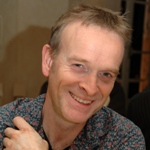
Prof. Dr. Alfons Hoekstra (PI) is a professor in Computational Science at the University of Amsterdam and the national research university ITMO, St Petersburg, Russia. His research focuses on multi-scale multi-science modelling, large-scale simulations, and high performance computing, mainly in the biomedical domain and complex systems science. He has a long-standing expertise in Computational Biomedicine, Complex Systems simulations, and high performance parallel and distributed computing. He has published over 250 research papers. He has extensive experience in participation and management of EU Framework projects. He was the project coordinator of the COAST project (FP6) and the MAPPER project (FP7) and is currently the project coordinator of the SOPHOCLES project (FP7). He participated in more then 10 other EU funded projects.
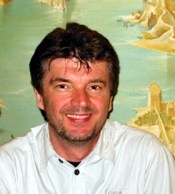
Prof. Dr. Peter Sloot is a distinguished research professor at UvA, The Netherlands, professor of Complex Systems, NTU, Singapore, and endowed professor of advanced Computing, ITMO, St. Petersburg State University, Russia. His research focuses on understanding how nature processes information. He studies this ‘natural information processing’ in complex systems by computational modelling and simulation as well as through formal methods. His work is applied to a large variety of disciplines with a focus on -but not limited to- Biomedicine and Socio-Economic systems. Recent work is on modelling the virology and epidemiology of infectious diseases, notably HIV, through Complex Networks, Cellular Automata and Multi-Agents. Recently he tries to build bridges to socio-dynamics. He has published some 500 research papers, edited many books. He is editor in chief of both the Journal of Computational Science and Future Generation Computing Systems, and is one of the founding fathers and long-term chairman of the International Conference on Computational Science. He has been involved in many EU research projects, and was coordinator of EU-funded VIROLAB and DYNANETS projects.
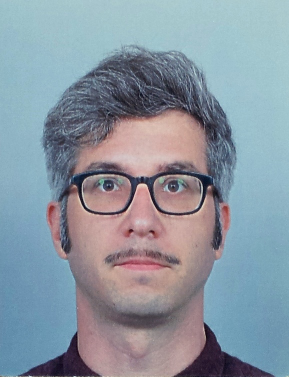
Dr. Eric Lorenz holds a PhD from the University of Amsterdam, where he contributed to the formalization and application of Complex Cellular Automata, a theoretical and software framework for the coupling of sub processes on different spatio- temporal scales. He developed fully resolved suspension flow models, successfully coupled microscale and macroscale descriptions of these systems, analysed their very specific computational patterns, and proposed an efficient HPC framework for such coupled simulations. He also actively contributed to the development of multiscale models of biomedical systems such as in-stent restenosis and thrombus formation in aneurysms. Since 2010 he is a postdoctoral fellow at UvA and has further specialized in high-fidelity modelling and parallel computing of complex fluids. He is actively involved in the development of HPC codes for fully resolved blood flow and other physical dispersions. He collaborates with the Institute of Physics at the UvA on the research on rheology and transport phenomena of dense suspensions and supervises BSc, MSc and PhD projects. In 2011 he founded Electric Ant Lab (EAL), a computational rheology and HPC company. EAL has recently received funding from the EC for the development of computational rheometry services that tremendously lower the threshold of using HPC simulations in product development.
University College London
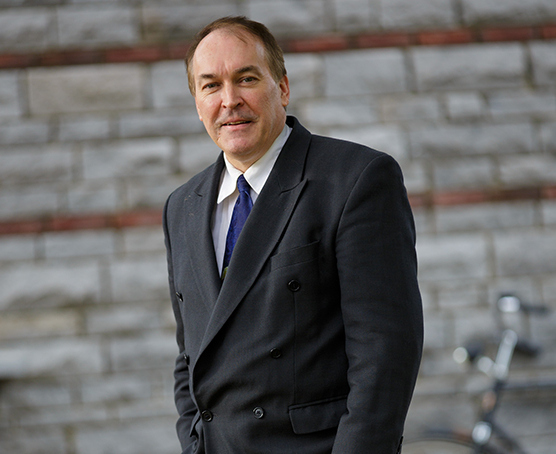
Professor Peter V. Coveney holds a chair in Physical Chemistry and is an Honorary Professor in Computer Science at University College London (UCL). He is Director of the Centre for Computational Science (CCS) and of the Computational Life and Medical Sciences Network (CLMS) at UCL. Coveney is active in a broad area of interdisciplinary research including condensed matter physics and chemistry, materials science, as well as life and medical sciences. He led the EPSRC RealityGrid e-Science Pilot Project (2001-05) and its extension as a Platform Grant (2005-09); he has also been PI on several current grants from EPSRC and other agencies, including the EU FP7 Virtual Physiological Human (VPH) Flagship Network of Excellence (2008-13). He has been the recipient of several major US NSF and DoE as well as European supercomputing awards from DEISA and PRACE, which provide access to several petascale computers. Coveney chairs the UK Collaborative Computational Projects (CCP) Steering Panel and has served on programme committees of many conferences, including the 2002 Nobel Symposium on Self-Organisation; he was Chair of the UK e-Science All Hands Meeting 2008, and of the Discrete Simulation of Fluid Dynamics conference 2003. He has co-authored two best-selling books (The Arrow of Time and Frontiers of Complexity, both with Roger Highfield) and recently co-authored the first textbook on Computational Biomedicine (Oxford University Press, 2014). Coveney is a founding member of the UK Government’s E- Initiative leadership Council and an Academy Nominated Expert to the UK Prime Minister’s Council for Science and Technology on a current project in the domain of Data, Algorithms and Modelling. His h-index is currently 55.
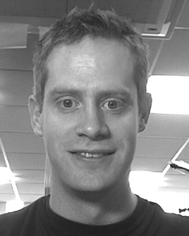
Dr. James Suter is a Post Doctoral Research Associate (PDRA) at the Centre for Computational Science at University College London. He is currently part of the lead team at UCL in the Qatar National Research Fund project NPRP 09-260-1-048 “Fundamental Understanding to Predictive Design of Layered Nanomaterials”, for which he developed the proposal with Peter Coveney. His research in coarse-grained molecular dynamics techniques and simulations of nanomaterials has recently been published as a Feature Article in Advanced Materials, with James as lead author. He was previously a PDRA with management responsibility in the Technology Strategy Board (TSB) project “NIMES: New Improved Muds from Environmental Sources”, from which patents for use in the oil industry are currently pending. He was also an active participant in the EU FP7 MAPPER project, interfacing his scientific research with the methodological and technological advances in distributed multiscale computing for applications in nano-science. With Peter Coveney, he has performed some of the world’s largest atomistic simulations of mineral systems through exploiting distributed computing e-Infrastructure; these simulations uncovered novel features of these systems and have enabled the calculation of materials properties currently inaccessible to experimentalists (Suter, J. L.; Coveney, P. V.; Greenwell, H. C.; Thyveetil, M.-A. J. Phys. Chem. C., 111, 8248-8259 (2007)). His interests include increasing the accuracy and application areas of multiscale simulation, spanning from the quantum level to atomistic and coarse- grained molecular dynamics.
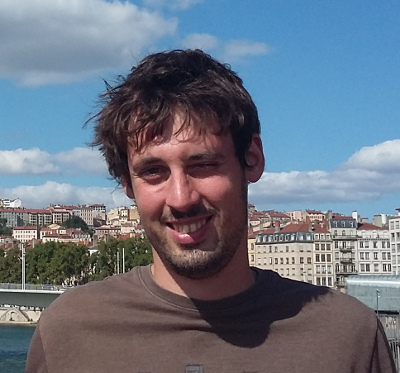
Dr Robin A. Richardson is a Post Doctoral Research Associate (PDRA) at the Centre for Computational Science, University College London (UCL). He holds a Masters in Computational Physics (University of Edinburgh, 2010), and a PhD in Computational Biophysics (University of Leeds, 2014). His broad research background has spanned the parameterisation of force fields for Molecular Dynamics (MD) simulations of Shape Memory Alloys, Finite Element (FE) simulations of molecular motors in flagella, lattice-Boltzmann simulations of cerebral blood flow in stroke patients, and multiscale materials prediction through coupling of MD with FE. Correspondingly, he has extensive experience of developing scalable codes across multiple supercomputing platforms. He has actively contributed to many research projects, including CompBioMed (EU) and CERREBRAL (Qatar National Research Fund).
Institute of Bioorganic Chemistry – Poznan Supercomputing and Networking Centre
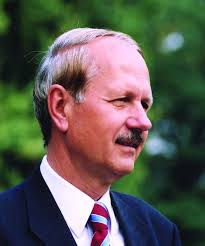
Prof. Jan Węglarz, Academician, Professor (Ph.D. 1974, Dr. Habil. 1977), in years 1978-83Associate Professor and then Professor in the Institute of Computing Science, Poznan University of Technology, member of the Polish Academy of Sciences (PAS), Director of the Institute of Computing Science, Poznan University of Technology and its predecessors since1987, Director of Poznan Supercomputing and Networking Centre. vice President and Scientific Secretary of the Poznan Branch of the PAS, vice President of the Committee for Computer Science of the PAS, member of the State Committee for Scientific Research, Principal Editor of the Foundations of Computing and Decision Sciences, member of several editorial boards, among International Transactions in Operational Research and European Journal of Operational Research. Representative of Poland in the Board of Representatives of IFORS and in EURO Council (President of EURO in years 1997-98). Member of several professional and scientific societies, among others the American Mathematical Society and the Operations Research Society of America. Author and co-author of 11 monographs, 3 textbooks and over 200 papers in major professional journals and conference proceedings. Frequent visitor in major research centres in Europe and in the USA Co-laureate of the State Award (1988) and the EURO Gold Medal (1991), laureate of the Foundation for Polish Science Award (2000).
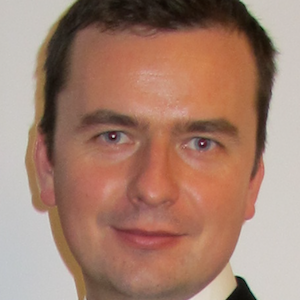
Dr Krzysztof Kurowski joined in research and development activities conducted at PSNC and he is leading now one of four departments. He has taken an active interest in the following research fields: distributed systems, security, scheduling and resource management in grid environments. He has taken also an active part in some EU Projects within 5, 6 and 7 Framework Programme, e.g. Enacts, GridLab, InteliGrid and HPC- Europe. Recently, he has been leading and managing technical activities in two EU projects: QosCosGrid and MAPPER. Results of his research efforts have been successfully presented at many international workshops and conferences, including IFORS, CCGrid, HPDC, Supercomputing and OGF. He is a member of the following standardization bodies: Open Grid Forum, Liberty Alliance, OASIS and ETSI. He was a research visitor of a few well-known research institutions, such as Argonne National Lab in Chicago/USA, University of Southern California in Los Angeles/ USA, University of Wisconsin in Madison/USA, Cardiff University in Cardiff/Wales, EPCC University of Edinburgh in Edinburgh/Scotland.
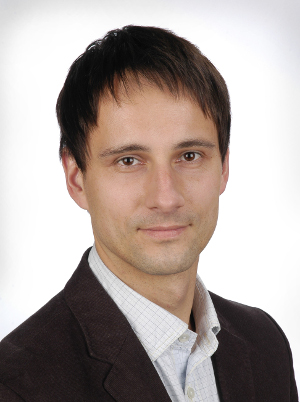
Dr. Ariel Oleksiak works in the Applications Department at Poznan Supercomputing and Networking Center since 2002. He received his M.Sc. degree in Computer Science, Intelligent Decision Support Systems, from the Poznań University of Technology, Poland in 2001 and PhD in Computer Science from the same institution in 2009. Since 2008 he has been a deputy head of the department and now leads an energy-efficiency technologies development. His research interests include mainly energy efficient technologies, distributed systems, resource management & scheduling, and simulations. He has actively contributed to many research projects such as GridLab, HPC-Europa, QosCosGrid, BREIN, AirProm, and FiPS. He was a project coordinator of the EU-funded CoolEmAll project dealing with energy-efficiency of data centers. He also was a member of the management committee of the European COST Actions IC0804 and recently IC1305 (in which he is a chair of the energy-efficiency working group).
Bayerische Akademie der Wissenschaften – Leibniz-Rechenzentrum
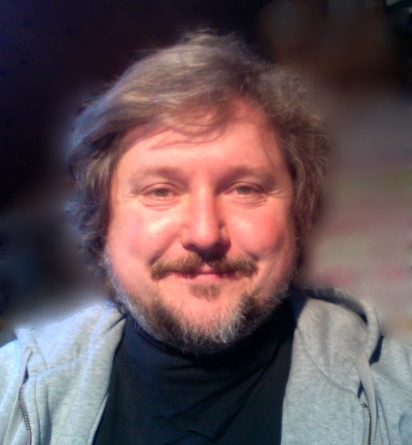
Dr. Helmut Heller is the leader of the Distributed Resources Group at the Leibniz Supercomputing Center (BADW-LRZ) in Garching near Munich, Germany. He has worked in the field of parallel computation since 1989, when he designed, built, and programmed a 60 node parallel Transputer-based computer for biophysical research. He holds a summa cum laude doctoral degree in theoretical biophysics from the Technische Universität München, but did his doctoral research at the University of Illinois at Urbana-Champaign, UIUC, and the National Center for Supercomputing Applications, NCSA, in the United States of America. Since 2001 he has been working in Grid computing, mostly with the Globus middleware. He was working in national (D-Grid, BY-Grid), European (DEISA, PRACE, GridLab, IGE, EGI), and international (WLCG) computing Grids involving high-end supercomputers and Linux clusters.
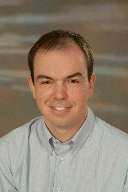
Univ.-Prof. Dr. Dieter Kranzlmüller is full professor at the Department of Computer Science at the Ludwig-Maximilians-Universität München (LMU) and member of the board of directors of the BADW-LRZ. He has worked in parallel computing and computer graphics since 1993, with a special focus on parallel programming and debugging, cluster and Grid computing. He has participated in several national and international research projects, has been acting as reviewer and international expert for several countries and research programmes, and has co-authored more than 150 scientific papers in journals and conference proceedings. At present, he serves as Scientific Director of the Center for Digital Technology & Management (CDTM). Before his move to Munich, he has been deputy head of GUP, the Institute of Graphics and Parallel Processing at the Johannes Kepler University Linz, Project Director of EGI_DS, appointed national representative of Austria in the eIRG, and member of the Austrian Grid Executive Board.
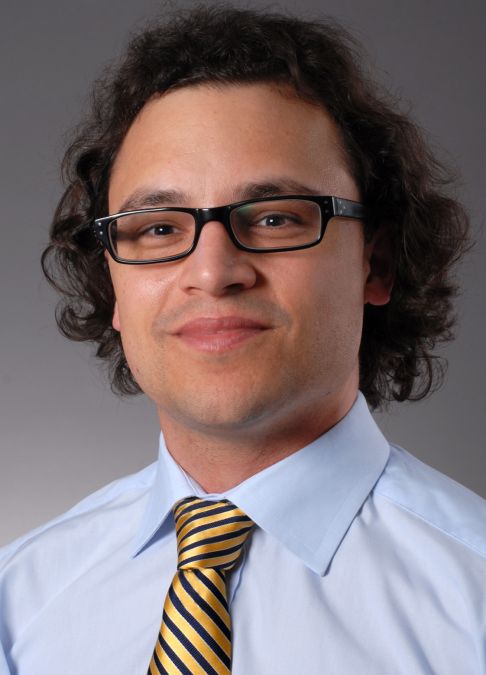
Dr. Stephan Hachinger works as a research associate in the Distributed Resources Group at the Leibniz Supercomputing Centre (BADW-LRZ) in Garching Near Munich, Germany. He holds a Ph.D. degree in theoretical astrophysics (2011, Max-Planck-Institute for Astrophysics / TU Munich), where he gained first experiences in parallel programming, performing simulations of radiative transfer in supernovae – actually a typical multi-scale problem. In astrophysics, he further worked on supernova observations and data analysis. He joined LRZ in 2014 and has since then been involved in the VAO/AlpEnDAC project (http://www.alpendac.eu), where an on-line data centre coupled with simulation and data-analysis facilities is established for alpine research stations. Besides this ongoing project, focusing on efficient utilisation of cloud resources for data storage and analysis, Stephan Hachinger has contributed to the seismological grid-computing project VERCE from 2014 to 2015.
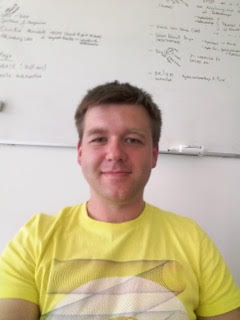
Dr. Vytautas Jančauskas got his PhD from Vilnius University in 2016. The subject of the thesis was evaluating the performance of multi-objective optimisation methods. He worked as a lecturer and assistant lecturer for more than 3 years. Supervised undergraduate computer networks course at the Faculty of Mathematics and Informatics at Vilnius University. Taught computer architecture, operating systems design and C programming. He has previous experience writing and executing code in supercomputing environments, parallel programming, code optimisation and multi-disciplinary research. Has worked with astrophysicists with hard optimisation problems in supernova research that require the resources of supercomputers to be solved. Vytautas contributed extensively to various open-source projects, via the Google’s Summer of Code program. He has joined the ComPat project at LRZ in 2016.
Max-Planck-Gesellschaft zur Förderung der Wissenschaften e.V
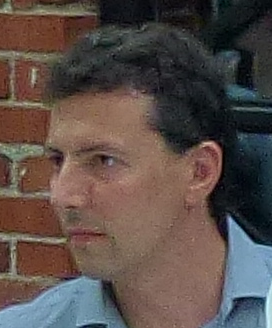
Dr Alberto Bottino is a senior researcher at the Max-Planck-Institut für Plasmaphysik. His research concerns the development of numerical simulation methods for plasma physics, particularly in the area of microinstabilities, using statistical simulation methods: particle-in-cell algorithms, control variate method and spectral codes. He has expertise in parallel algorithms and high performance computer programming, application and development of kinetic and fluid models for the study of anomalous transport in tokamaks.
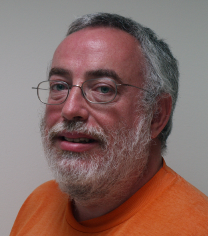
Dr David Coster is a senior researcher at the Max-Planck-Institut für Plasmaphysik, where he leads the Edge Physics group in the Division of Tokamak Physics, one of the two theory divisions at IPP Garching. He was the Project Leader for Integrated Modelling Project 3 (Core and Edge Transport) within the EFDA ITM Task Force. As well as being a Deputy Task Force Leader, Dr Coster was the deputy coordinator of the seventh European Framework Programme (FP7) project EUFORIA and was also involved in the FP7 project MAPPER. His own research has concentrated on understanding the behaviour of the edge and scrape-off layer regions of the tokamak plasma.
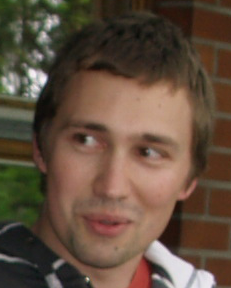
Dr Olivier Hoenen is a Post Doctoral Research Associate at the Max-Planck-Institut fuer Plasmaphysik (IPP), specialized in parallel computing and adaptive methods. He was involved in the Infrastructure Project for the ITM-TF, and in the EU FP7 project EUFORIA. He participated in the MAPPER project where he was interested in distributed multiscale simulations for plasma physics.
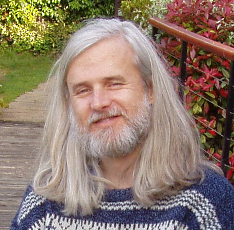
Dr Bruce Scott is a senior researcher at the Max-Planck-Institut für Plasmaphysik where he leads the turbulence group in the Tokamak Physics Dvision. He wss Project Leader for Integrated Modelling Project 4 (Turbulence, Instabilities, and Transport) in the EFDA-Task Force on Integrated Tokamak Modelling. His research involves theory and computation in magnetised plasma physics with emphasis on nonlinear magnetohydrodynamics and microturbulence. He has of order 100 papers with recent ones in the direction of fundamental theory of gyrokinetic and gyrofluid models and their
conservation properties.
University Leiden
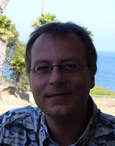
Prof. Simon Portegies Zwart Since 2009 Simon Portegies Zwart leads the interdisciplinary research team on Computational Astrophysics at the Sterrewacht Leiden. His prominent role in this young discipline is accentuated by his appointments as a visiting scientist at RIKEN (Japan) and as the Editor in Chief of the in 2014 launched open access Journal on Computational Astrophysics at Springer. Portegies Zwart has earned an outstanding track record in this field, which is demonstrated in part by publications in Nature, Science and IEEE Computer, prestigious fellowship and the awarded scientific prizes in astrophysics as well as computational science; including the Schmeits Prize and the Enlighten Young Research Award. In 2014 he was awarded the Wim Nieuwpoort prize (for the most outstanding achievements in high-performance computing) for his work with PhD student Tjarda Boekholt on the design of a novel symplectic algorithm for integrating planetary orbits on massively parallel computers. He is currently nominated for the Gordon Bell prize 2014; the world’s most prestigious prize for high-performance computing. Together with PhD student Jeroen Bédorf, he receives this nomination for the world-record performance of 24.8 PetaFlops at >90% efficiency on the Oak Ridge National Laboratory Supercomputer Titan (#2 on Top500) for simulating the Milky Way galaxy on a star-by- star basis.
The Hartree Centre/STFC
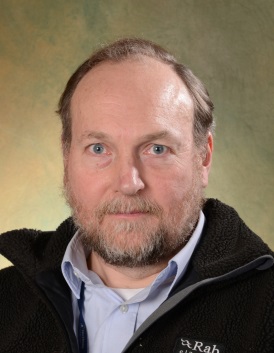
Dr. Paul Sherwood leads the Applications Division within the Scientific Computing Department at STFC Daresbury Laboratory. He is a quantum chemist by training, and prior to his current appointment was the leader of the department’s Computational Chemistry group. The focus of Sherwood’s research career has been the development of software for simulation of complex chemical systems. He has been a developer of the GAMESS-UK package and has specialised in mixed Quantum Mechanics/Molecular Mechanics (QM/MM) methods, in which quantum chemistry is used in conjunction with classical modelling techniques. Sherwood led a successful European project “Quantum Simulation in Industry” (project EP25047) (which included significant developments to the ChemShell package, this is now one of the leading general-purpose implementations of the QM/MM method. Sherwood has published an invited review of multiscale modelling for biology applications.
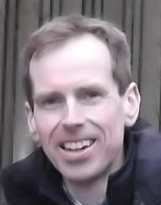
Dr. Phil Ridley holds a BSc in Mathematics (University of Wales, Bangor) and a PhD in Computational Physics: ‘Finite Element Simulation of the Micromagnetic Behaviour of Nanoelements’. Following his PhD, he worked on several academic research project, the last of which was at the University of Edinburgh in the School of Geosciences. He then left academic research to work in computational science and engineering (CSE) support for HPC as a member of the CSE support team for the UK’s former national academic resource, HECToR. During this time he was co-ordinator for the HECToR distributed CSE (dCSE) programme, which resulted in over 90 successful HPC software development projects. He has also worked on several HPC production codes to improve their efficiency and usage. He is an experienced HPC applications analyst and project manager with knowledge of a wide range of parallel applications codes and the methods required for their efficient implementation on conventional and emerging architectures. He has reviewed several PRACE projects over the last few years, mainly for CFD applications. He is currently working as a Computational Scientist at STFC. This role involves investigating software development and algorithms for energy-aware HPC with existing architectures, and the use of lower power HPC architectures.
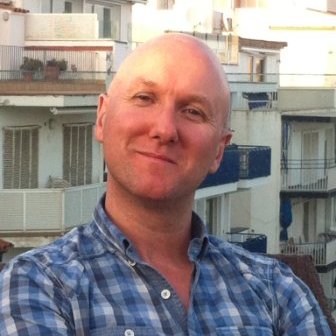
Dr Adrian Toland is Business Development at the Science and Technology Facilities Council, UK where he leads on the development of projects for the Hartree Centre in various sectors including Chemistry and Materials. He is an experienced senior manager with a solid record of accomplishment in delivering commercial knowledge exchange outcomes. Adrian has worked in network and partnership development roles for academic and commercial organisations including Manchester Metropolitan University and Chemistry Innovation KTN (InnovateUK). He has led both academic and support teams, coordinated many successful, high profile research proposals and developed / directed significant funding allocations. He has a deep understanding of university processes and partnership development having worked in a number of knowledge exchange roles. With nine years of commercial management experience he has a first rate grasp of external dynamics and internal trends affecting both industry and HE sectors. He has a BSc in Chemistry (Honours) and a PhD awarded by the National University of Ireland, Galway and has also worked as a researcher for ENEL Produzione, Italy and TU/e, The Netherlands.
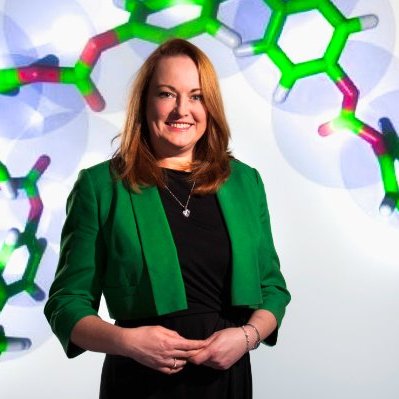
Dr. Angela Walsh holds a BSc (Hons) in Chemistry from the University of Newcastle and a Ph.D. in Electrochemical Engineering. Following her Ph.D, she took a research job in industry & then made the move into Business Development. Following fifteen years of business development experience within the private sector (encompassing various market sectors and company sizes), her current role is Business Development within the Hartree Centre at STFC, working on European projects.
Allinea Software
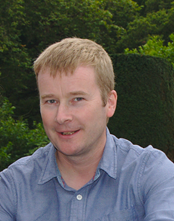
Dr David Lecomber is CEO and Founder of Allinea Software. He holds a PhD in Parallel Computing from Oxford University, and leads the company. Whilst a tutor at Oxford, he taught a broad range of undergraduate and graduate courses, and specialized in parallel computing, distributed systems, and formal correctness for parallel programs – including communicating sequential processes and his thesis specialized in the correctness of bulk-synchronous parallel programming and distributed shared memory. Within the project he will primarily provide technical oversight and direction to the rest of the team.
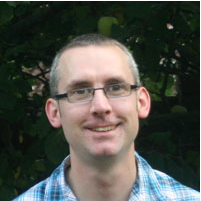
Chris January is VP Engineering of Allinea, and holds a Masters degree from Imperial College London, where his thesis specialized on his Logrind2 program-trace framework. As part of this thesis, he integrated the popular Valgrind program instrumentation framework with GDB and with a relational database, enabling temporal logic analysis to be performed on memory access patterns. He led the development of the core scalable architecture for Allinea’s products which took development tools to beyond Petascale capabilities and currently leads Allinea’s Mont Blanc 2 project contribution.
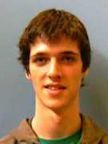
Dr. Keeran Brabazon holds a PhD in Scientific Computation from the University of Leeds. He is specialised in algorithms for the solution of nonlinear elliptic PDEs – in particular the class of nonlinear multigrid methods. He has recently joined Allinea, where his role is to support HPC application developers in scaling codes to extreme scales and increasing application performance, whilst reducing development time, through the use of the suite of scalable and intuitive HPC debugging and performance analysis tools provided by Allinea.
CBK Sci Con
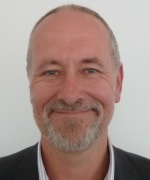
Paul Best is CBK’s chairman and manages the company’s involvement in EU proposals. Paul is a Chartered Engineer with 35 years of engineering, research and technology business experience, spanning complex engineered systems in aerospace, defence, transport, energy and sports sectors. Paul was a director and shareholder of Frazer-Nash Consultancy (computational scientific, engineering & mathematical services) and past chairman of CFMS Limited (Centre for Fluid Mechanics Simulation) a government supported joint venture with Rolls-Royce, Airbus, MBDA, BAE Systems, and Williams F1. Paul also sits on the UK Government’s E-Infrastructure Leadership Council.
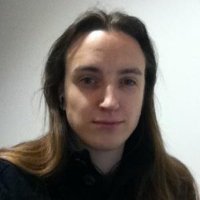
Dr. Hugh Martin is the General Manager of CBK Sci Con and is a computational nucleotide-nanopore scientist with a PhD from UCL. Since finishing his PhD, Hugh has worked for the Centre for Computational Science at UCL on various EU and UK funded initiatives including projects pertaining to biomedical informatics and complex natural systems. As General Manager, Hugh manages all of CBK’s activities and is the principal point of contact for the company.
National Research University ITMO
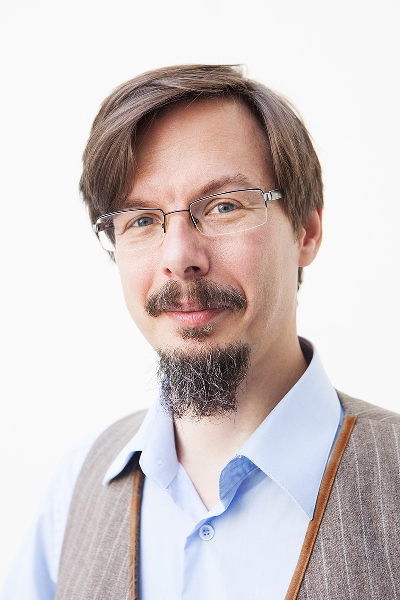
Prof. Dr. Alexander Boukhanovsky is the Chair of High Performance Computing Department in ITMO University. In 2005, he defended his dissertation on Concurrent software statistical measurements of spatial-temporal fields. Since 2006 he has been working as a Professor of Information Systems and Head of the Parallel Software lab in ITMO University. In 2007 he created the eScience Research Institute where he and his team created CLAVIRE (CLoud Applications VIRtual Environment). In recent years he attracted several grants including mega grants of RF Government, e.g. decree #220 “on measures to attract Leading Scientists in the Russian educational institution” and decree #218 “cooperation of Russian higher education institutions and organizations implementing complex projects of high-tech industry”. His research interests are high-performance computing, computer modelling of complex systems, intelligent computational technologies, statistical analysis and synthesis of spatial-temporal fields, parallel and distributed computing, distributed environments for multidisciplinary researches, decision support systems and technologies, statistical analysis and simulation in marine sciences.
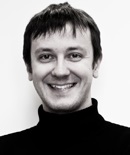
Sergey Kovalchuk studied Computer Software at Orenburg State University and was named the Best student in 2004 and Best Graduate of 2006. He obtained his PhD on parallel computing techniques in problems of physical and statistical modelling from ITMO University. His research interests are Distributed Computing Systems, Big Data, and Parallel algorithms. Currently he is involved in a number of R&D projects including his personal grant on the implementation of knowledge-based approach to build composite high-performance applications. He is one of the leading specialists in development and optimization of platforms with a special focus on interactive workflow models.
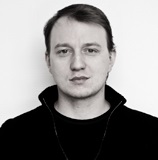
Sergey Ivanov graduated from the State Marine Technical University of St. Petersburg and holds a PhD degree from ITMO University where he contributed to identifying models of complex systems using parallel computing technologies. His recent work concentrates on adaptive technology performance analysis, optimization and load balancing in multiprocessor computer systems and parallel and distributed computing in heterogeneous environments. In particular Sergey analyses uncertainties in decision-making processes, performs risk assessment, among others for the early warning system of the St Petersburg Flood Protection Barrier.
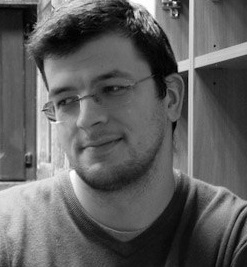
Denis Nasonov is a Senior Developer of CLAVIRE. Since 2010 he is actively involved in the development of coupled domain-specific languages EasyFlow and EasyPackage for unified workflow design and data-driven composite applications of CLAVIRE platform. Denis develops solutions for decision-making process in critical situations with significant social impact (e.g. acts of terrorism, criminal activity) and social response to external stimuli (e.g. panic at fires or flooding, epidemics, etc.).
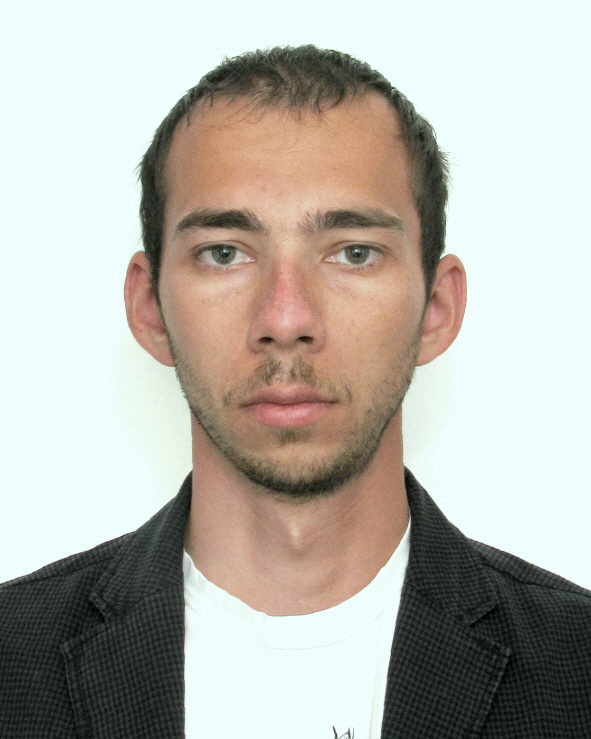
Andrey Svitenkov studied physics and computer science at ITMO University. His thesis is about multiscale bridging methods for continuum and particle based simulation approaches in domain of micro- and nanomechanics, materials science. Currently he is a researcher at the eScience Research Institute and a part time teacher at the Department of High Performance Computing. He has developed an elective course in Numerical Methods of Structural Mechanics for the first year master students of Double Degree Master’s Program Computational Science in Multidisciplinary Research. The sphere of his research interests lies in mathematical physics, theoretical mechanics, statistical physics, surrogate and reduced-order models, whith applications in the biomedical domain.
Brunel University London
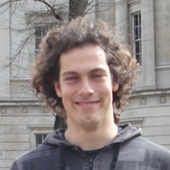
Dr. Derek Groen is a post-doctoral researcher and a Fellow of the Software Sustainability Institute. He specializes in multiscale simulation, high performance computing and distributed computing, and has published 19 peer-reviewed journal papers. He currently works on constructing multiscale models using the HemeLB bloodflow simulation environment, and helpsg to apply our approach to clinically derived datasets of cerebrovascular arteries. Derek also applies and improves coarse-graining techniques for molecular dynamics simulations of clay-polymer nanocomposites systems, which has recently resulted in the publication of a Feature Article in Advanced Materials. Derek is responsible for improving and maintaining the MPWide communication library, the FabSim toolkit, and he has collaborated in the development of MUSCLE 2 and the predecessor of AMUSE (MUSE). Derek has worked with a wide range of applications, including methods such as lattice-Boltzmann, stellar and cosmological N-body dynamics, and molecular dynamics. He obtained his PhD from the University of Amsterdam in 2010, where he ran large cosmological simulations geographically distributed across up to four supercomputers. He has also worked on a variety of performance optimization projects; he was involved in the CRESTA project and has worked on extreme scaling of codes such as LB3D and HemeLB.
